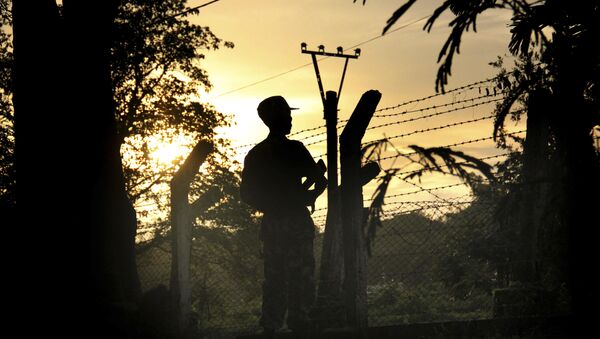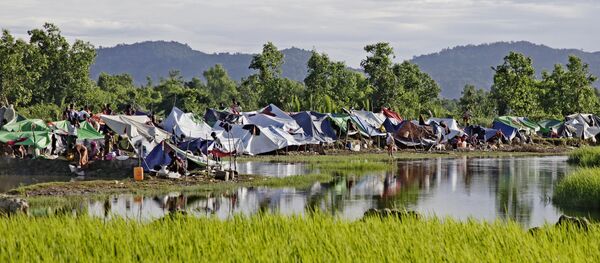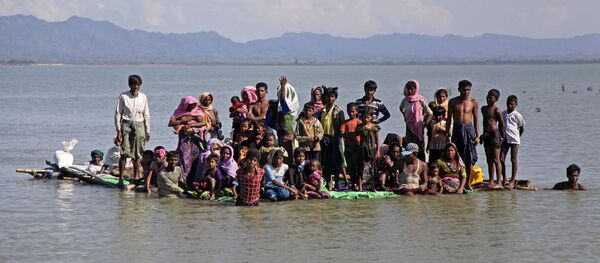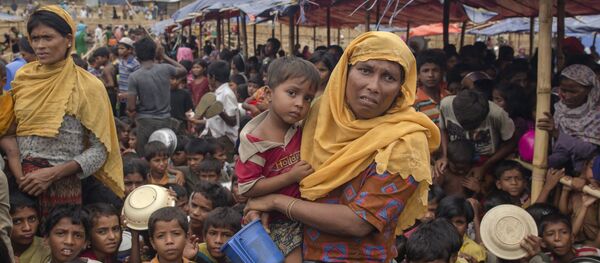The site in question, a "no man's land" between Myanmar and Bangladesh, is technically part of the former nation's sovereign territory, but it is beyond Myanmar's border fence, making it de facto shared territory between the two countries.
The no man's land is also home to a refugee camp housing roughly 5,000 Rohingya Muslims fleeing what the United Nations has described as an "ethnic cleansing" in Myanmar. Some world leaders, such as French President Emmanuel Macron, have gone so far as to describe it as a genocide.
Myanmar has claimed that some of the 5,000 refugees were terrorists responsible for an attack on a police station in August, the incident that signalled the beginning of the crackdown that has left at least 10,000 dead and 700,000 displaced. Almost all of the refugees fled into neighboring Bangladesh.
"They brought at least 14 ladders and intimidated us by trying to climb over the fences and come to our camp to evict us," Mohammad Arif, a Rohingya Muslim living in the refugee camp, told AFP. He added that the Myanmarese troops called for the Rohingya to vacate the area via loudspeakers.
When the Bangladeshi asked to meet with the leaders of the troops, they were told that the officers were "away or busy elsewhere," AFP reported.
Bangladesh summoned the Myanmarese ambassador to Dhaka and has warned Myanmar to pull their troops back from the border. Foreign Minister Abul Hassan Mahmud Ali said that the "military build up will create confusion within Bangladesh and escalate tensions on the border."
Brigadier Gen. Mujibur Rahman, who commands Bangladeshi border forces, said that the Myanmarese removed the heavy weapons after he protested, but the troops remain.
The two nations have been discussing a repatriation deal for Myanmar to re-accept the Rohingya into their territory, but human rights groups are concerned that such a move would lead to further violence and persecution.
Myanmar has also been accused of conducting numerous massacres, such as the Tula Toli massacre, which took place August 30 and reportedly left over 500 Rohingya civilians dead.
Although the Rohingya consider themselves an ethnic minority of Myanmar, many of the Buddhist majority consider them illegal foreigners from Bangladesh. The two groups fought on opposite sides of World War II, with the Rohingya supporting the Allies and the Rakhine Buddhists allying with the Imperial Japanese.
In both 1978 and 1991, Naypyidaw launched military operations against Rohingya insurgent groups in Rakhine state, driving hundreds of thousands of them out of the country. However, the current crisis dwarfs either of those operations.







